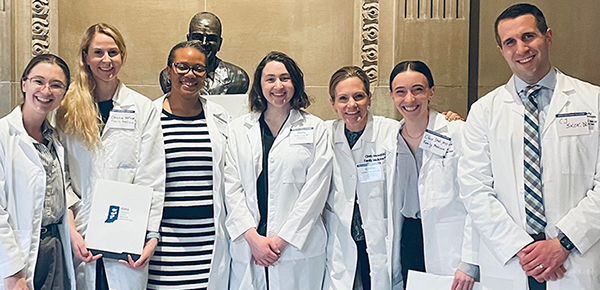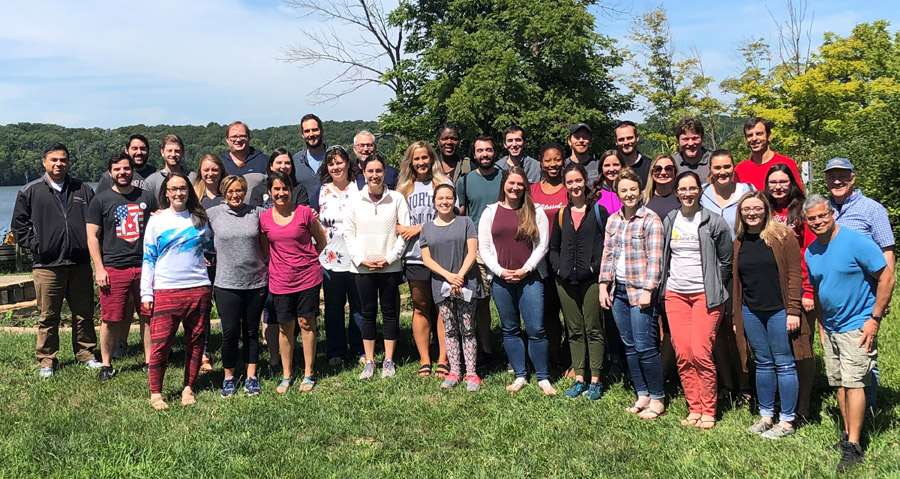Inpatient Medicine (Service)
As an intern, my service day starts at 7:15 a.m. This gives me enough time to print off our inpatient list and get a cup of coffee. I am in love with our coffee kiosk. Morning report starts at 7:30 a.m. and consists of sign out on how our patients did overnight and reports on any new patients that came in overnight. Our pharmacist and social worker are available at this time for any questions that come up, and there is usually something new to learn every day.
After report and splitting the list between the interns and second year, it is time for a short didactic session which lasts about 15 minutes then off to see my patients. This varies depending on how busy we are. We can see anywhere from two to eight patients. Afterwards, I meet up with the rest of the team for group rounds with our attending. Group table rounds start about 10:30. We will also do some in-person rounding on some of our clinic patients. We are usually done with rounding by noon.
Next, I either get started on discharges and patient follow-up or grab lunch. If possible, I try to meet up with other residents in the hospital at this time. After lunch, it is time to check on patient care, messages from the office, or maybe work on a new admission. Around 1:30, half of the team will go off to clinic for an abbreviated clinic session from 2 to 5 p.m. while the other half of the team will stick around in the hospital to monitor patients and take admissions.
At 6:30 p.m. it is time for evening sign out, and our nocturnal counterparts come in. By 7 p.m., the day team heads home.
Obstetrics
It’s baby time! After grabbing breakfast from the cafeteria, OB service starts off with sign out at 7:15 a.m. Next, after checking to see if there are any active labor patients or scheduled c-sections, I do rounding on postpartum couplets. It’s my favorite time of the day when I get to hold the new babies. If any of those babies are male and need circumcisions, it’s time to head to the circ room. This is followed by a discussion about an OB topic with the attending and fellow team members.
Anytime throughout the day I may need to check on and write a note for a labor patient. If not, I usually grab some lunch with the service team at this time. After lunch, one of the OB’s may need help with a labor patient or c-section. I often spend my afternoons reassuring first-time moms over the phone or checking patients in triage to see if they are in labor.
At 6:30 p.m. it's time for sign out and to head home for dinner.

